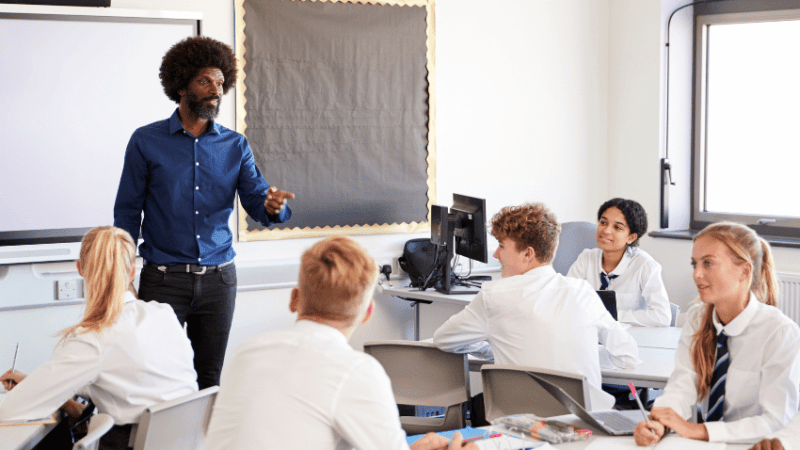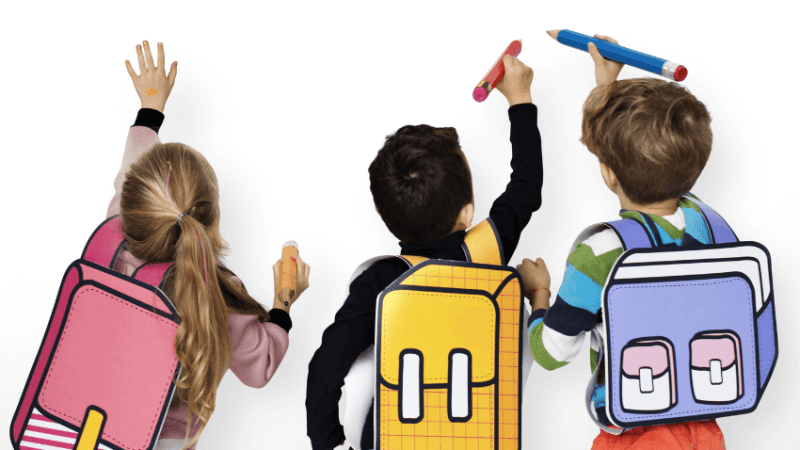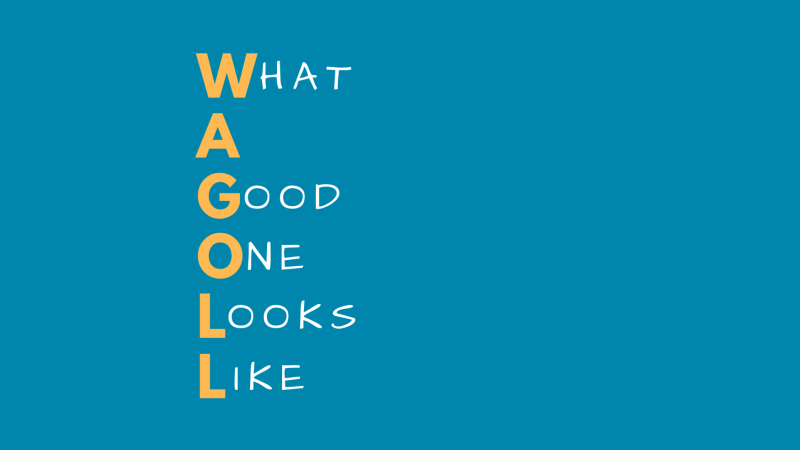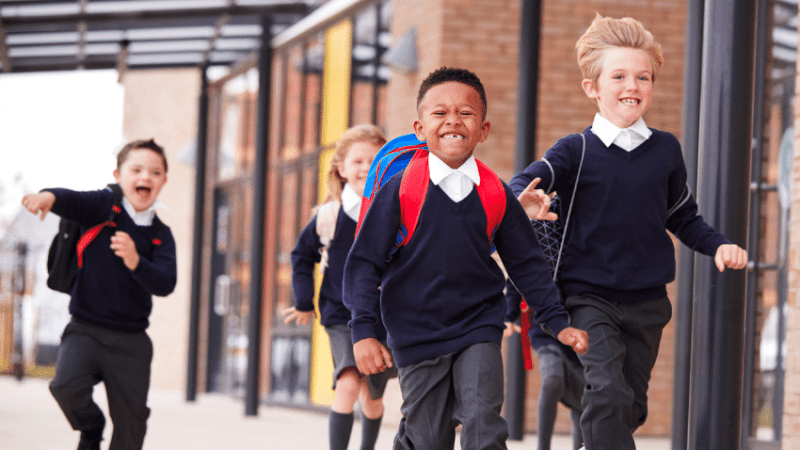Respect and responsibility supports excellent behaviour (and no marking) at this school
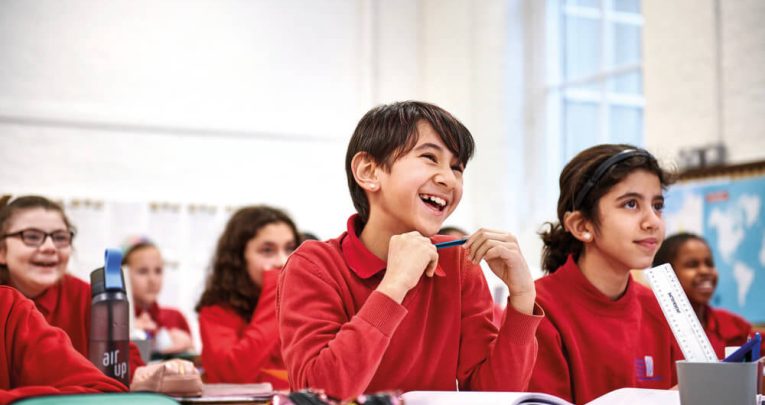
Pupils are actively encouraged to understand their own rights as humans and citizens at the South London primary…

If I asked you what knowledge or skills you’d most like your pupils to take away from their primary experience, what would you say? Perhaps self-confidence, awareness of the world around them, or respect for themselves and others? Well, Charles Dickens Primary School prides itself on providing all this and more.
As I approached the school on a grey day in January, the buzz of morning London traffic around me, I almost missed the entrance. Tucked away down an unassuming side street in Southwark, this neat and modest building belies the significance of what’s inside…
Back in 2016, Charles Dickens became a Rights Respecting School, for which it adopted the UN’s Convention on the Rights of the Child (or UNCRC for short).
The Convention is a series of articles outlining the rights that children legally have as humans and as citizens. It includes some stipulations that you might expect, such as the right to an education, and to shelter and food, but also some more modern developments, such as the right to information from the media, and the right to express their feelings in all matters relating to them.
The UNCRC also stipulates that governments must ‘actively work to make sure children and adults know about the Convention’. Charles Dickens Primary is certainly doing that.
“We knew that our children were getting a good quality education,” explains headteacher Michael Eggleton, “but also that that’s not the case for everyone in the world, so it’s good to open their eyes to how privileged they are, and how we can support others.”
That’s not to say a lot of the children at the school aren’t disadvantaged, says Michael, or that they don’t have certain areas they need to work through, but the staff wanted pupils to be able to learn about other areas of the planet, and hear about things they may not otherwise have come across.
It was decided that the UNCRC would be a perfect lens through which to view these issues.
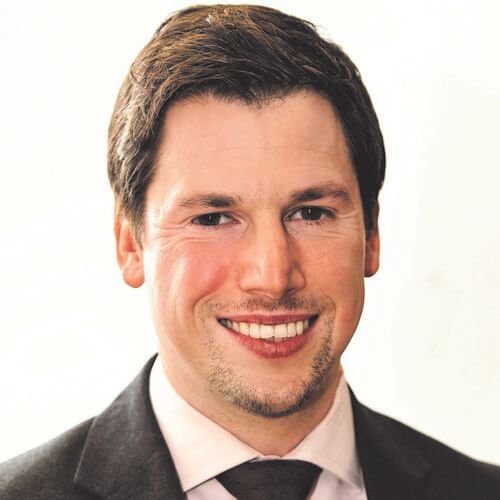
School profile
Name: Charles Dickens Primary School
Headteacher: Michael Eggleton
Location: Southwark, London
Ofsted rating: Outstanding
Size: 483 pupils
Extra info: Part of The Charter Schools Educational Trust
1 | Embedding change
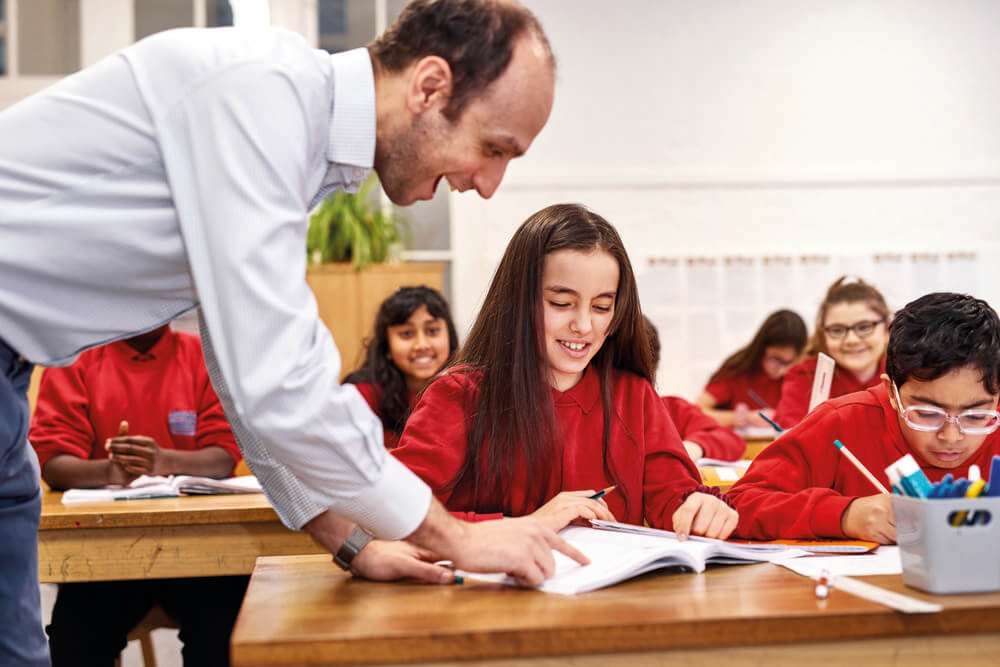
Instead of just surfacing these globally conscious conversations through PSCHE lessons, at Charles Dickens knowing your rights is embedded throughout the entire curriculum.
“We’re a knowledge-rich school,” explains Michael, “and once we had decided we were going to pursue the Rights Respecting School route, we thought the best way to embed it would be to make our own curriculum booklets.”
These booklets not only provide a deep knowledge for pupils in every` subject, but also seamlessly embed the Rights of the Child into lessons.
Deputy head David Windle elaborates: “It’s all woven in. One booklet, which covers the Amazon Rainforest, is about logging and deforestation, and empowering people to make changes. Another classic Year 5 topic looks at the abolition of slavery, however it’s not just about the history, but the personal empowerment as well, which leads to social change.”
Societal change and influence are not only theoretical at Charles Dickens. Children are encouraged and supported to play an active role in their community, and have taken part in projects such as protest marches and sending letters to MPs to oppose development over local park land, (it worked – the park is still there).
A major moment of activism also happened for Year 6 children when they were invited to speak with prime minister Boris Johnson ahead of his trip to Norway for a climate conference in 2021.
Michael says, “The children had written letters to the prime minister about the conference, and were subsequently able to interview him on the topic. It was important for them to have their voices heard like that.” Ongoing community projects have also seen Charles Dickens pupils grow vegetables and donate them to Dickens Pantry, a community foodbank run from the school that supports local families.
For impact closer to home, when the primary was undergoing redevelopment, children lobbied for changes to their toilets, to allow a more open space combined with the privacy of cubicles.
And this isn’t just lip service – these changes have come to fruition, demonstrating the power of democracy here.
But surely all these extra activities take precious time away from an already-packed curriculum? Not really, says Michael. “Any change is always a challenge, but because we have created the curriculum booklets, everything is laid out for teachers and they don’t have any extra reading to do.”
Teachers no longer even need to take training for the approach, because it’s been fully distilled into the curriculum, and new staff have everything they need from day one in the booklets.
2 | Encouraging agency
What is entirely evident at Charles Dickens Primary School is the high level of agency at play; both for the staff and for pupils.
The school has been judged as Outstanding by Ofsted since 2008, which has allowed a certain amount of freedom in their approach, and means that staff are able to adapt their provision to the needs of the class.
All this to say, the UNCRC doesn’t just have an impact on the children’s school activities. It is a wide-ranging benefit that will hopefully carry through their lives, into secondary school and beyond.
“The great thing is that children know how to stay safe, what they should expect from us as adults, and how to tell when something isn’t quite right,” explains Michael. From a safeguarding point of view, this is hugely helpful – both for the school, and for children and their parents.
Daniella Jamois, one of the assistant heads at Charles Dickens and current Reception teacher, says that teaching children about their rights and responsibilities helps to strengthen the local community, and bring different kinds of families together.
“We’re a very mixed community,” says Daniella, “and so there are pupils in social housing who live in close proximity to those who might have much fancier accommodation. Their parents often have very different professional backgrounds too, so the school has become a real hub for them to mix and learn to understand each other, and we have a very strong parent community.”
There are quite a few teachers who have been at Charles Dickens for the long haul, explains Daniella, and as such they’ve taught several siblings from the same family, and so have very strong links with parents and carers.
But it hasn’t always been the smoothest ride. “When we began using UNCRC, some parents were a little bit fearful,” says Michael. “A bit worried that we were putting too much ownership on the children to understand their own rights, and that perhaps they might even use that as a weapon against their caregivers.
There was the odd occasion where children had tried to use lines at home like “I know my rights! I don’t have to brush my teeth!” But, of course, that’s a misconception, and once we fine-tuned our communication with parents, and they understood we weren’t teaching their kids that they could stay up and eat chocolate all night, they were on board.” Michael chuckles.
“Now they’re aware we’re teaching the children about our responsibility as carers and teachers to keep them safe and give them what they need, and in turn, that pupils must respect their responsibility to work with us.”
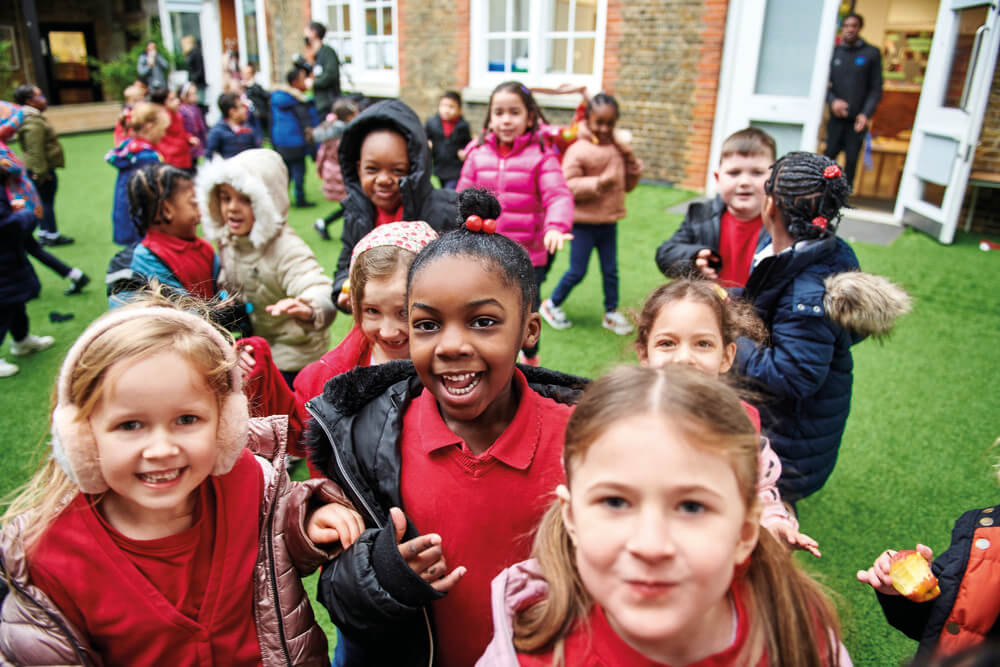
3 | Positivity breeds positivity
It makes sense then, that another of the Charles Dickens Primary School hats, alongside Rights Respecting School and Research School, is Behaviour Hub.
Last summer, the Department for Education (DfE), along with its lead behaviour advisor, Tom Bennett, began identifying schools who were marked as Outstanding by Ofsted, and had very strong behaviour, to lead as support hubs for the rest of the country.
The leadership team at Charles Dickens decided to apply, based on their strong record. “The newspapers at the time were reporting on the idea that behaviour hub schools were these zero-tolerance, no-talking-in-corridors, sent-home-for-imperfect-uniform –type environments,” Michael explains. “But that’s not what we’re about, and not actually what the hub is about, either. There may have been some schools that were quite hard-line, but certainly not all of them.”
The aim of the game for Charles Dickens, says Michael, is for children to be “safe and respectful”.
This goes for the staff, too. In order to help maintain work-life balance and wellbeing for teachers, the school has a no marking policy.
It might sound radical, but as Michael explains, children still get the feedback they need, without teachers having to spend hours of their own time poring through books: “Around five years ago, we were part of a study looking at the efficacy of marking,” he says.
“When we delved into it, the average teacher was spending three hours after school every day marking, and we started to wonder about its true impact for children.”
For a primary setting, Michael explains, after-the-fact marking meant that children had to be able to both read the comments and be able to effectively respond to them, which wasn’t always possible.
Instead, he says, after looking at a variety of methods, the school decided the best evidence was for live marking: “So, giving feedback to the children when they’re in the classroom – whether that’s writing out challenges on the board and finding a common solution as a class, or the teacher walking around while pupils are working and providing in-the-moment comments.”
Trending
This allows children to react immediately to feedback, explains Michael, increasing its efficacy, and means that teachers can spend their after-school time prepping for lessons or winding down, rather than endlessly marking.
After some trialling, teachers found that children not receiving after-school marking in books weren’t at any disadvantage, academically. Rather, they were performing at exactly the same level as they were when their books were marked every day.
However, the big difference, says Michael, is that staff had three extra hours each day, so could focus on supporting children that perhaps needed more support, or building in additional resources or intervention groups.
4 | Working together
This kind of freedom and professional agency plays a huge part in maintaining happy staff, says Daniella, who herself has been at the school for over 14 years.
“I love the fact that if you have a passion, the senior leadership are very open to you exploring that, so really working from your strengths. I think that’s why the staff turnover here is so low,” she says.
One of the passions that Daniella is able to pursue through her role at Charles Dickens is environmentalism, which she has demonstrated through setting up a Forest School. “We incorporate it all into the curriculum,” she explains, “teaching the children about where their food comes from. They understand that without this attention to nature, their futures are in jeopardy, and that the way we produce food is a problem.”
Pupils take on a lot of responsibility within the school grounds, looking after allotment gardens and so forth, which has helped build a very strong environmental literacy. They even sometimes sell the produce they grow – and eggs from the school chickens – at Borough Market.
This is all part of the Rights Respecting School, too, explains Daniella, in that the children want their voices heard on environmental matters. “I also run the Eco Council,” she says, “so I meet up once a week with the Eco Councillors, and they decide what they’d like everyone to focus on for the coming week.”
These focuses could be anything from litter in the playground to the use of cars in Central London, and pupils are free to not only air their thoughts and grievances, but to put actions into place.
“We write up their ideas for the weekly focus,” explains Daniella, “and they deliver that to the rest of the school through an assembly. Of course, due to restrictions at the moment, we’re not having big assemblies, so the councillors are just delivering their ideas in class. But the important thing is that the children are having their voices heard.”
The team at Charles Dickens Primary School, then, leads by example; teachers give pupils the room and the agency to express their feelings and opinions, and in turn, children are (as much as children can be) well behaved, eager to learn, and from what I can see, pretty woke.
I get the feeling that Mr Dickens himself would approve. As he wrote in his novel The Life and Adventures of Martin Chuzzlewit: ‘No man can expect his children to respect what he degrades.’
Pupil voice
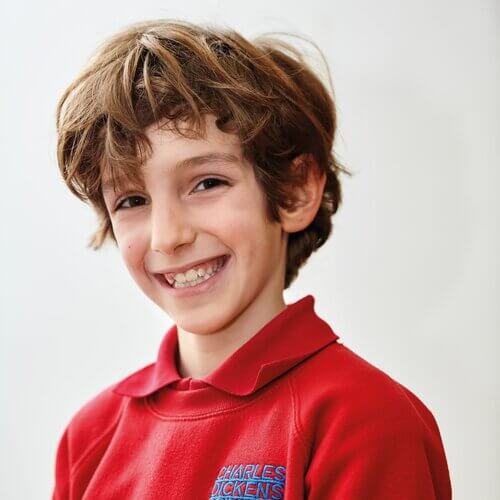
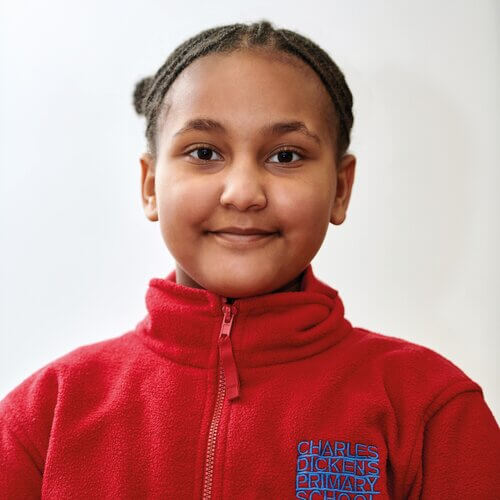
Teo
“By learning about our rights, we can really change things, so we can try and stop stuff like deforestation. It makes me happy to make a difference in the community.”
Rayah
“By learning about our rights, we can really change things, so we can try and stop stuff like deforestation. It makes me happy to make a difference in the community.”
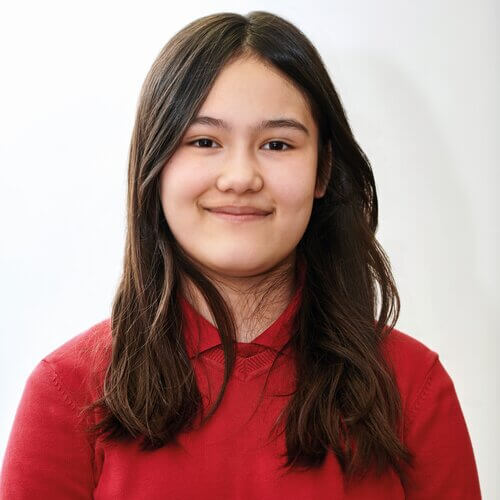
Sofia
“I’m on the School Council, which is great because we really have a say in what goes on. It can be a lot of pressure though – I like to make sure I’ve made the right decision for everyone!”
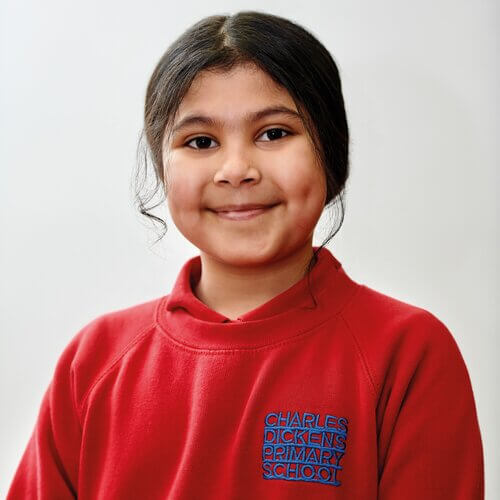
Suheera
“We’ve learned that some children in the world don’t have what we have, so it’s important that we share, donate, and not waste anything. We need to help each other out.”
Specialist learning
As well as embedding the UNCRC within the main curriculum, Charles Dickens Primary also employs specialist teachers for subjects such as music, PE, French, and art.
“We think it’s essential that our children get access to this kind of cultural capital, no matter their background,” says Michael. “We have after-school clubs for things like karate, boxing and street dance, which are all free, and we provide heavily-subsidised music lessons.”
The goal over the next three years, says Michael, is to double the amount of music lessons on offer, using Pupil Premium funding to make as many free as possible.
“We want all pupils to have a fighting chance,” he explains, “and part of that is offering subjects their peers in independent schools may have – traditionally – better access to, as well as making sure they’re as qualified as possible for secondary school scholarships, if that’s their goal.”
A dedicated, specialist music teacher and rehearsal space means that every child has a chance at picking up an instrument. “Depending on the day, you could walk in and see every single pupil with an instrument in their hand,” says Michael proudly.
On top of this, Charles Dickens also has a dedicated art studio, where children are encouraged to get messy and explore their creativity, and a spacious, purpose-build gym, where coaches from Southwark Gymnastics teach classes every week.
Meet the staff
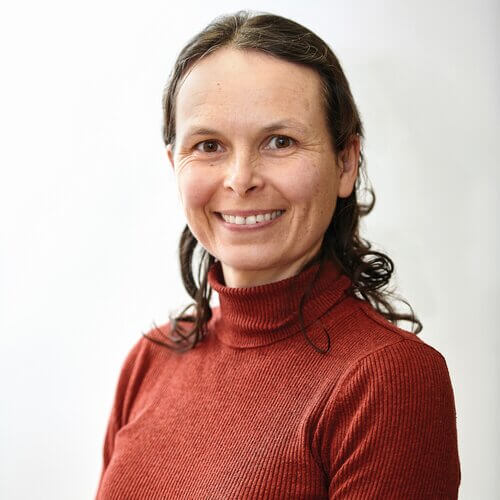
Daniella Jamois, assistant head & Reception teacher
“We have such a strong community here. There are all sorts of children, from all sorts of backgrounds on roll, and we’re a real hub, allowing for that community crossover. We have a strong parent community, too, and we’re very close to a popular park where children play after school, so it all ties in together.”
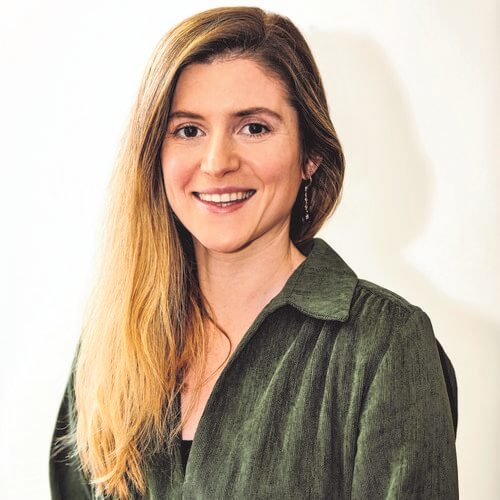
Lucia Naravaez, Year 3 teacher
“It’s my first year of teaching, and it’s been great. The school is very welcoming, and everyone is so supportive. Lots is done for you, like with the booklets, so you can spend your PPA time actually adjusting to the needs of your class, which is really valuable. The children are so passionate too; even with the smallest of topics they will really get into it – they all have such different views.”
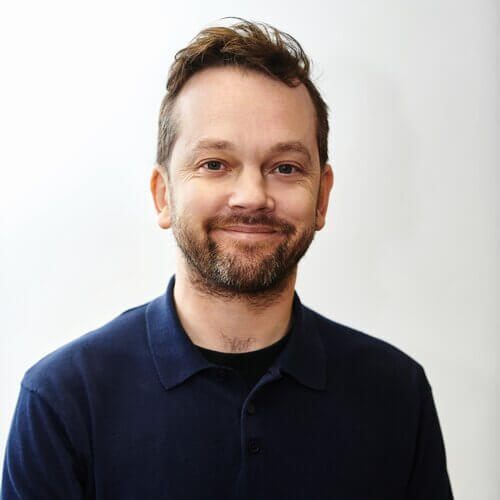
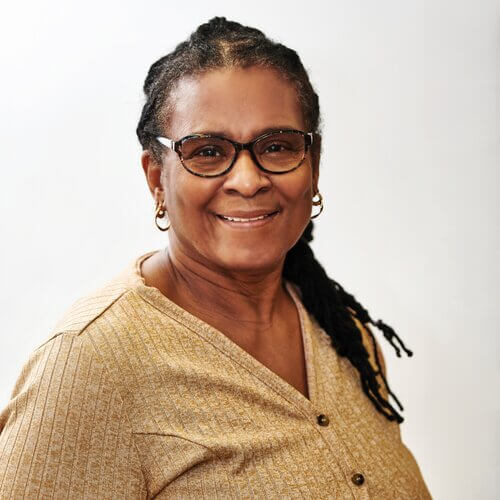
Robert Paul, Year 4 teacher and year leader
Aggie Mesmain, early help manager
“It’s always great, during School Council elections, how seriously the children take the exercise, and how empowered they are by it all. They write and perform a speech if they’d like to be a councillor; they all listen to one another, and then they vote. They really respect the democratic process – it’s lovely to see.”
“I’ve worked at Charles Dickens for 35 years, so I’ve seen a lot of changes – all for the better! The children now know their rights; what they can expect from teachers, from support staff, and from their parents. And they know how to talk about it all, obviously depending on their age. Before the training I didn’t realise how much input children can have in their own lives – as of course they should!”







